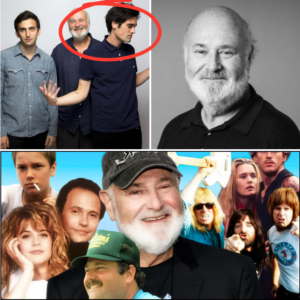Elon Musk, the billionaire entrepreneur behind Tesla, SpaceX, and The Boring Company, has set his sights on a bold new venture: a $760 million project to construct underground tunnels beneath Houston, Texas, to combat the city’s chronic flooding. Unveiled in early 2025, the ambitious proposal by The Boring Company seeks to address one of Houston’s most pressing challenges—devastating floods exacerbated by hurricanes and urban sprawl—by diverting stormwater through a network of subterranean tunnels. Backed by Houston-area Republican Congressman Wesley Hunt and quietly pitched to state and local officials, the plan has sparked both excitement and skepticism, highlighting Musk’s knack for tackling grand challenges while raising questions about feasibility, transparency, and the role of private enterprise in public infrastructure.
Houston’s Flooding Crisis
Houston, the fourth-largest city in the United States, has long grappled with severe flooding, a problem worsened by its flat terrain, rapid urbanization, and vulnerability to hurricanes. The catastrophic impact of Hurricane Harvey in 2017, which claimed 107 lives and caused $125 billion in damages, underscored the urgent need for innovative flood mitigation strategies. The storm inundated hundreds of thousands of homes, displaced residents, and exposed the limitations of the city’s aging infrastructure. Since then, the Harris County Flood Control District has explored ambitious solutions, including a $30 billion plan for a vast tunnel system to divert floodwaters from federal reservoirs to the Gulf of Mexico.
The district’s original vision called for eight massive tunnels, totaling 130 miles, with diameters of 30 to 40 feet, buried 40 to 140 feet underground. These tunnels, wide enough to accommodate a container ship, were designed to handle the region’s torrential rains and prevent catastrophic flooding. However, the project’s enormous cost and decade-long timeline have frustrated local leaders and residents, who are eager for faster, more affordable solutions. Enter Elon Musk and The Boring Company, which has proposed a scaled-down alternative: two 12-foot-diameter tunnels stretching 36 miles from the Addicks and Barker Reservoirs to the Port of Houston, at a fraction of the cost.
The Boring Company’s Proposal
Founded in 2016 to address urban traffic congestion, The Boring Company has pivoted in recent years to tackle a range of infrastructure challenges, from transportation to flood mitigation. The Houston project, estimated at $760 million, represents one of the company’s most ambitious undertakings to date. Unlike the Harris County plan, which prioritizes large-scale tunnels, The Boring Company’s proposal focuses on smaller, 12-foot-diameter tunnels that align with its expertise in rapid, cost-efficient tunneling. The company claims its proprietary tunnel-boring machines, such as Prufrock, can dig faster and cheaper than traditional methods, potentially completing the project in a few years rather than a decade.
The proposed tunnels would form part of the Buffalo Bayou segment, a critical component of Harris County’s flood control strategy. By channeling stormwater from the reservoirs directly to the Gulf, the system aims to reduce surface flooding in Houston’s most vulnerable neighborhoods. The Boring Company has pitched a public-private partnership model, with the company designing, building, and potentially operating the tunnels. Under the plan, state and local governments would provide 15% of the project’s cost upfront—approximately $114 million—with the remainder funded by private investment. Congressman Wesley Hunt’s chief of staff, James Kyrkanides, has lobbied for $60 million in state budget funds, to be matched by an equal amount from Harris County, as a “down payment” for the project.
Political Support and Quiet Negotiations
The project has gained traction thanks to the support of influential figures like Congressman Hunt, a rising star in Texas politics who is reportedly eyeing a U.S. Senate run. Hunt, who represents Houston’s 38th Congressional District, has been a vocal advocate for Musk’s vision, emphasizing its potential to deliver a faster, more cost-effective solution to Houston’s flooding woes. In February 2025, Hunt revealed at a town hall that he had discussed the project with Musk, claiming the billionaire promised to build the tunnels at a fraction of the cost estimated by the U.S. Army Corps of Engineers. Emails obtained by local media suggest that Hunt’s team has been in regular contact with Texas Lieutenant Governor Dan Patrick’s office, with Kyrkanides noting in May 2025 that “everything seems on track” after discussions between Musk, Hunt, and Patrick.
Lieutenant Governor Patrick, a Republican, has expressed enthusiasm for the project, stating, “If Elon Musk and The Boring Company can build two massive tunnels under the Houston bayous in a few years to save the city from flooding, I am always going to be interested to listen.” Patrick’s support reflects Musk’s growing influence in Texas, where he has relocated several of his companies, including Tesla’s Gigafactory and The Boring Company’s headquarters in Pflugerville. The billionaire’s close ties to Republican leaders, including former President Donald Trump, have further bolstered his ability to navigate the state’s political landscape. Reports suggest that Hunt and Musk discussed the tunnel project during a trip on Air Force One, though it remains unclear whether Trump was directly involved.
Skepticism and Challenges
Despite the political momentum, the proposal has faced significant skepticism from experts and local officials. Critics argue that the smaller 12-foot tunnels may be less effective at managing the massive volumes of water generated by Houston’s frequent storms. Larry Dunbar, a veteran water resources engineer who has advised Harris County on drainage issues, dismissed the plan, noting that The Boring Company’s expertise lies in transportation tunnels, not flood mitigation. “If you build a smaller tunnel, it’ll be cheaper, but it can carry less water,” Dunbar said. He and other experts worry that the narrower tunnels could become overwhelmed during major storms, undermining their effectiveness compared to the larger tunnels proposed by the county.
The project’s reliance on a public-private partnership has also raised concerns about transparency and competitive bidding. Texas law requires counties to open major infrastructure projects to public bidding, but Musk’s team has been accused of engaging in behind-the-scenes negotiations that bypass standard procedures. Harris County Commissioner Rodney Ellis, while supportive of exploring tunnel solutions, expressed unease about the lack of transparency, stating, “I’ve heard all the stories about Elon Musk having a tunneling company. I’ve got good Republican friends, too, now.” Despite these concerns, the Harris County Commissioners Court unanimously voted in April 2025 to study a scaled-down pilot project, which includes specifications similar to those pitched by The Boring Company.
Environmental and permitting challenges further complicate the project. Even a smaller-scale tunnel system would require extensive environmental reviews, federal approvals, and community input, potentially delaying construction for years. Houston’s history of flooding, combined with its complex geology, poses additional engineering hurdles. Unlike the dry, stable conditions of Las Vegas, where The Boring Company built a 1.7-mile transportation loop, Houston’s clay-heavy soil and high water table make tunneling more difficult. Critics also point to The Boring Company’s mixed track record, noting that several of its proposed projects—in cities like Chicago, Los Angeles, and Baltimore—have been abandoned due to regulatory or financial obstacles.
Musk’s Texas Ambitions
The Houston tunnel project is part of Musk’s broader push to expand The Boring Company’s footprint in Texas, a state he has embraced for its business-friendly regulations and minimal red tape. Since relocating Tesla’s headquarters to Austin in 2021, Musk has established a significant presence in the Lone Star State, with SpaceX’s Starbase in Boca Chica, Neuralink’s operations, and The Boring Company’s research and development facility in Bastrop County. In 2022, the company began testing tunnels in Bastrop, using its Prufrock machine to refine techniques for rapid digging and debris removal. Musk has also pitched other Texas projects, including a pedestrian tunnel in Kyle and a potential airport-to-downtown connector in San Antonio, though many of these remain in early stages or have been shelved.
The Houston project aligns with Musk’s vision of transforming urban infrastructure through innovative engineering. The Boring Company has already completed a test tunnel in Hawthorne, California, and a transportation loop under the Las Vegas Convention Center, where Tesla vehicles ferry passengers at speeds up to 40 miles per hour. While the Las Vegas project has been criticized for its limited capacity and lack of pedestrian safety features, it has demonstrated The Boring Company’s ability to deliver functional tunnels. Musk’s Houston proposal builds on this experience, adapting the company’s technology to address a different challenge: flood mitigation rather than traffic.
A Polarized Reception
The tunnel plan has divided Houston’s residents and leaders. Supporters, including local business owners and flood-weary homeowners, see it as a potential lifeline for a city battered by increasingly severe storms. The promise of a faster, cheaper solution, backed by a billionaire known for defying conventional timelines, has generated excitement. “If anyone can pull this off, it’s Elon Musk,” said one Houston resident, echoing Lieutenant Governor Patrick’s sentiment. The project’s potential to create jobs and stimulate the local economy through construction and related industries has also won favor.
However, skeptics argue that the plan prioritizes Musk’s business interests over the city’s long-term needs. Community advocates, like Colleen Gilbert of the Greens Bayou Coalition, have raised concerns about the lack of public input and the potential environmental impact of tunneling beneath Houston’s watersheds. Others question whether The Boring Company’s smaller tunnels can handle the scale of flooding seen in events like Hurricane Harvey. The project’s reliance on public funds, even for a portion of the cost, has also drawn scrutiny, with critics arguing that taxpayers deserve greater transparency about how their money will be spent.
The Road Ahead
As of September 2025, the Houston tunnel project remains in the planning phase, with the Harris County Commissioners Court’s approval of a pilot study marking a preliminary step. The Boring Company has not yet secured a contract, and any construction is likely years away, pending environmental reviews and funding agreements. Musk’s team continues to lobby state and local officials, leveraging his political connections and reputation for bold innovation to keep the project alive.
The Houston tunnel proposal encapsulates both the promise and the pitfalls of Musk’s approach to problem-solving. His willingness to tackle complex challenges like flooding with cutting-edge technology has inspired hope, but his track record of overpromising and the technical limitations of smaller tunnels raise legitimate concerns. For Houston, a city desperate for solutions after decades of devastating floods, the project represents a high-stakes gamble on a billionaire’s vision. Whether The Boring Company can deliver a transformative flood defense system—or whether the plan will join the list of Musk’s unrealized ambitions—remains to be seen. As the debate continues, Houstonians are left to weigh the potential benefits of Musk’s tunnels against the risks of entrusting their city’s future to a polarizing figure with a penchant for the extraordinary.


